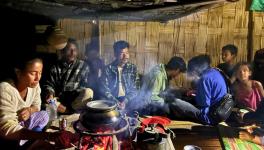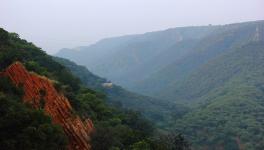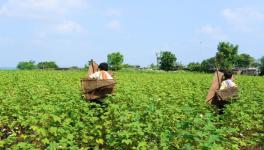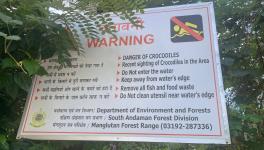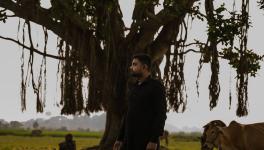WB: Experts Call for Integrated Climate Action Plan for Sundarbans in First-ever International Delta Summit
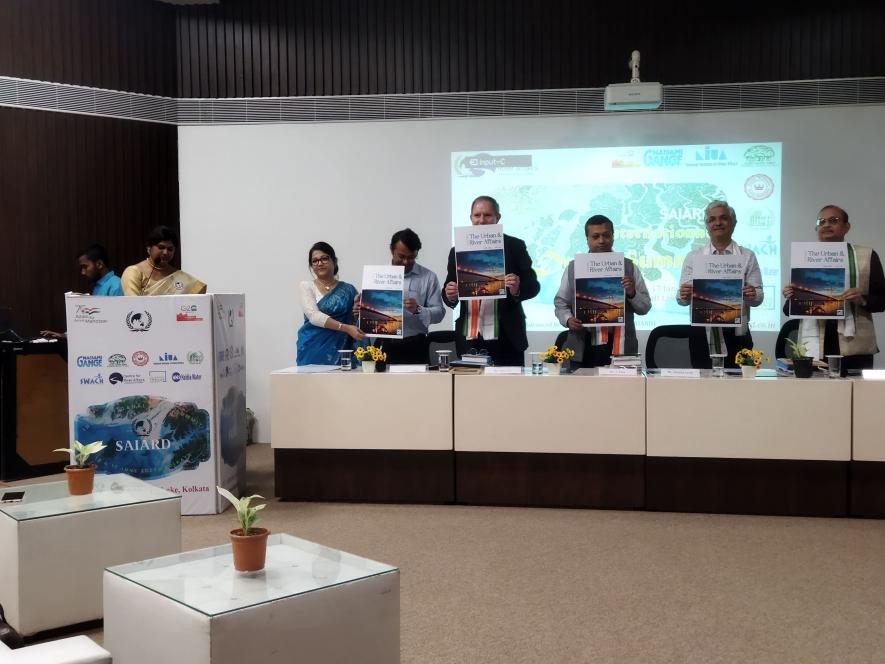
Launch of delta catalogue at first delta summit in Kolkata
Kolkata: The panellists, experts and scientists all came together in the first-ever delta summit in Kolkata, focusing on building sustainable projects across the ecologically fragile deltaic region of the state.
The question of the survival of the Sundarbans, which now stands in an ecologically fragile position due to sea level rise, was also discussed in the two-day summit organised by the South Asian Institute for Advanced Regional Development (SAIARD), an independent think tank working in the field of holistic development of the region.
"Deltas are economic activity centres, with ports, industries, and agriculture driving growth and development. They are hubs of innovation, cultural exchange, and scientific exploration. By harnessing delta communities' inherent resilience and adaptive capacity, we can forge a path towards sustainable and inclusive development." said Prof. Biswajit RoyChowdhury, Chairman, SAIRD.
"This summit represents a significant milestone in our collective efforts to address the pressing challenges and opportunities faced by delta regions across the globe," he added.
NewsClick talked to noted climate scientist Anjal Prakash, the lead author for several IPCC reports.
"In the AR6 IPCC Report, multiple observations have been made about the delta region, which has implications in the region. One concern is rising sea levels because of climate change and global warming. That has led to submerging low-lying islands. With the sea level rise, a major proportion of it will go underwater, but salinity will also ingress into freshwater bodies. The deltaic region of Bangladesh and West Bengal is one of the thickly populated regions; a huge population across the two countries, to the tune of 400 -500 million, will be hugely impacted."
Furthermore, Prakash talked about the flora and fauna and the region's livelihood.
"Over the last 10-15 years, the number and frequency of cyclones have increased. The livelihood is constantly under threat. We need to invest in climate-resilient infrastructure. More and more areas are becoming excessively saline, making them uncultivable. These are all coming from case studies. There is a need for sound data and a bigger study. Department of Science and Technology needs to commission it. It has to be done in both top-down and bottom-up approaches. The top-down approach means satellite imagery of the region and data preparation, and the bottom-up approach means talking with people and important stakeholders to find the exact happenings. I would like to call for a climate action plan for the delta region, which is the need of the hour."
Speaking at the inaugural session, Prabhat Mishra, secretary of, department of Agriculture, Government of West Bengal, raised concern on how the salinity levels in the Sundarbans had been steadily increasing due to heavy siltation, obstructing the flow of fresh water and disrupting the salinity balance.
"Our department has been working on an ingenious project of excavating 654 km of creeks - which has allowed an influx of fresh water, reducing salinity and transforming farming practices. The excavation of creeks had also allowed an influx of fresh water, replacing toxic Vannamei shrimp cultivation with freshwater "Tiger" prawns, a local species. This transformation has resulted in the rejuvenation of the Sundarbans, promoting biodiversity and sustaining livelihoods, irrigation and waterways."
Dushyant Nariala, principal secretary, department of disaster management, talked about the protection of waterways.
"Our department is actively involved in disaster mitigation efforts since prevention is better than cure, as for the past few years, the efforts have shifted towards mitigation and adaptation, including making shelter homes and training civil defence volunteers who work tirelessly for rescue relief towards saving lives. NDMA has developed a policy on soil erosion. This summit is important for bridging the gap between research and policymakers."
On Friday, SAIARD launched the Global Delta Catalogue of 32 deltas from across the world, which contains information about the geography, physiography, agricultural practice, and population of the Deltas. The catalogue also highlights deltas as a means of livelihood, a hub of biodiversity, water resource, and a shield of disaster risk reduction.
A vast population worldwide live on deltas, many in sprawling megacities such as Kolkata, Shanghai, Dhaka and Bangkok. Conservative estimates value major deltas worldwide at trillions of dollars in economic revenue and ecosystem services. The rich delta ecosystem and its services — storm protection, nutrient and pollution removal and carbon storage — are being destroyed. Increased climate migrants threaten fisheries and cultural heritage.
Prof. Tuhin Ghosh, Director of the School of Oceanographic Studies at Jadavpur University, said, "We can expect more heatwaves and more water logging; the IPCC report has repeatedly been warning us of the need for more careful action and more awareness. The summit is an effort in that direction."
Deltas worldwide share the same fate, be it the eroding Indus Valley delta plain of Pakistan or China's retreating yellow river delta. Rising sea levels compounded with the sediment crisis will create havoc by the turn of the century, increasing the risk of flooding / drowning in deltas at an unprecedented scale.
About 120 million people live on the Ganges Delta under the threat of repeated catastrophic floods due to heavy meltwater runoff from the Himalayas and intense rainfall during the monsoon season.
Delta cities like Kolkata are among the top 10 worldwide that face the most dangerous multi-hazard risks and are most vulnerable to disaster-related mortality. Higher temperatures are likely to influence the riverine system when glaciers melt severely.
Dr Anamitra Anurag Danda, Director of the Sundarbans Programme, WWF India, said, "We are still responding to problems that are already here. The city has expanded, and we cannot anticipate the challenges. We need to see the city beyond its geographical boundaries and use science to prepare better for the problem. We must create our institutions and build capacity to solve our problems."
The UNEP Adaptation Gap Report 2021 suggests that the annual adaptation cost in developing countries could be between USD 155 billion and USD 330 billion by 2030. In COP27 last year, countries formally recognised the need for finance to address the loss and damage associated with climate change and agreed to establish a fund for 'Loss and Damage'.
However, given the existing ambiguity on international global funds, the time has come for India to look into innovative financial mechanisms that can raise capital, particularly to address the issue of vulnerable regions like the Indo- Gangetic Delta.
Prof Runa Sarkar, IIM Calcutta, said, "Today, we are reflecting on the terrifically challenging situation that the Delta region faces regarding climate change and our very poor adaptation capabilities. The good thing, however, is today we have RBI being serious with the idea of climate finance from the point of view of the risk it poses on India's climate finance system."
Speaking about the role of the Indian Meteorological Department's role in managing the deltaic regions, Dr Sanjib Bandypadhyay from India Meteorological Department said, "The IMD has been tirelessly working towards providing essential data for department and masses for planning purposes as well enabling early warning system using various layers of forecasting methods."
Debashis Sen, IAS, CMD, HIDCO, Govt of West Bengal, and Dr Balamurugan, IFS and CEO of the Department of Environment, also spoke at the event.
Balamurugan delivered a memorial lecture on Dr Dhrubajyoti Ghosh (Wetland Man of India).
"Dr Dhurbajyoti Ghosh has made a difference to the state's wetlands. We need to think about what we do to protect the wetlands because if we don't, we will face climate impacts like heat island effects, flooding, cyclones, etc.," he said.
Get the latest reports & analysis with people's perspective on Protests, movements & deep analytical videos, discussions of the current affairs in your Telegram app. Subscribe to NewsClick's Telegram channel & get Real-Time updates on stories, as they get published on our website.









